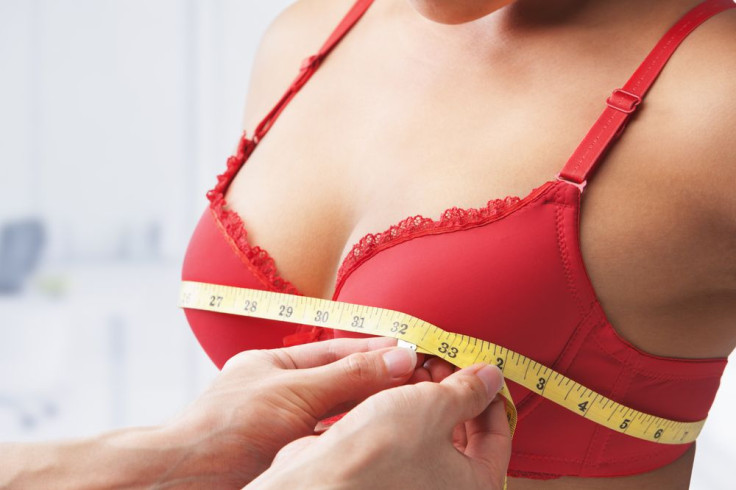High-Tech Bra Prevents Women From Overeating: Sensors Detect Changes In Heart Rate, Skin Temperature, And Stress Levels

Women who find themselves taking a trip to the fridge every time they are stressed are anxious overeaters who may benefit from a sensor that tells them when to stop seeking comfort in food. Microsoft’s new prototype high-tech bra can predict when the wearer is most likely to overeat and warns them against it, according to a recent study.
In the national Stress in America latest survey, an annual analysis by Harris Interactive for the American Psychological Association, 35 percent of adults reported feeling more stressed in 2012 than in 2011. Of the respondents, 53 percent added that they received little to no support from their health care providers with regards to coping with high levels of stress. Increasing stress levels in Americans is a cause for concern as many stressed individuals turn to comfort food to counteract stress.
When stress becomes a consistent factor in a person’s life, the adrenal glands release the hormone cortisol, which increases appetite and motivation, especially the motivation to eat, says the Harvard Medical School. These high cortisol levels, in combination with high insulin levels, may be responsible for the increased intake of high-fat and sugary foods during times of physical and emotional distress. With stress levels and obesity rates in the U.S. steadily increasing, a device to curb stress-related overeating may be the answer they are anxiously anticipating.
Microsoft’s team of engineers and designers have developed a stress-busting bra made with special material to monitor the wearers' moods and help regulate stress eating. The undergarment contains sensors in the cup pockets and side panels to detect changes in heart rate, skin temperature, and stress levels, which are viewed as precursors to overeating. The data acquired from the sensors is then streamed via Blue tooth to a smartphone app providing real-time “mood-triggered eating” alerts.
Four women from the Microsoft research lab also volunteered to try the device. The volunteers had to wear three conductive fabric pads inside their bras, and also use the mobile application, EmoTree, in order to self-report their emotions. The high-tech bra was worn by the participants for about four to six hours a day over a period of approximately four days while they reported their emotions. Every three to four hours of wearing the bra, the women had to recharge the 3.7-volt battery which resulting in the women rummaging through their clothes throughout the day, Discovery News reports.
The wearers’ heart rate and respiration were captured with an EKG sensor, while skin temperature was captured with an electrodermal activity sensor, and movement with an accelerometer and gyroscope. The data sent from the Bluetooth to the smartphone app was also stored in the researchers’ computer.
The findings of the study revealed that the bra was able to detect arousal for stress with an accuracy of stress-induced overeating at 75 percent and emotion at roughly 73 percent. “Based on these results, we conclude that building a wearable, physiological system is feasible,” said Mary Czerwinski, a cognitive psychologist and senior researcher in visualization and interaction at Microsoft.
Czerwinski believes women are more likely to overeat, and believes the development of a stress-busting bra could prevent women from this unhealthy behavior. Despite this belief, the Microsoft team is now experimenting with “sensor bracelets” for men so they can be notified of snack attacks. Previously, the Microsoft team tried to do the same with men using underwear but came up short in their attempt. "We tried to do the same thing for men's underwear but it was too far away (from the heart),” Czerwinski told Discovery News.
Czerwinski and others are trying to find how technology may effectively monitor and understand human emotions to offer simple solutions such as stress-induced overeating.
For ways to counter stress eating, click here.
Source: Czerwinski M, Johns P, Kapoor A, et al. Food and Mood: Just-in-Time Support for Emotional Eating. Psychological Science. 2013.
Published by Medicaldaily.com



























